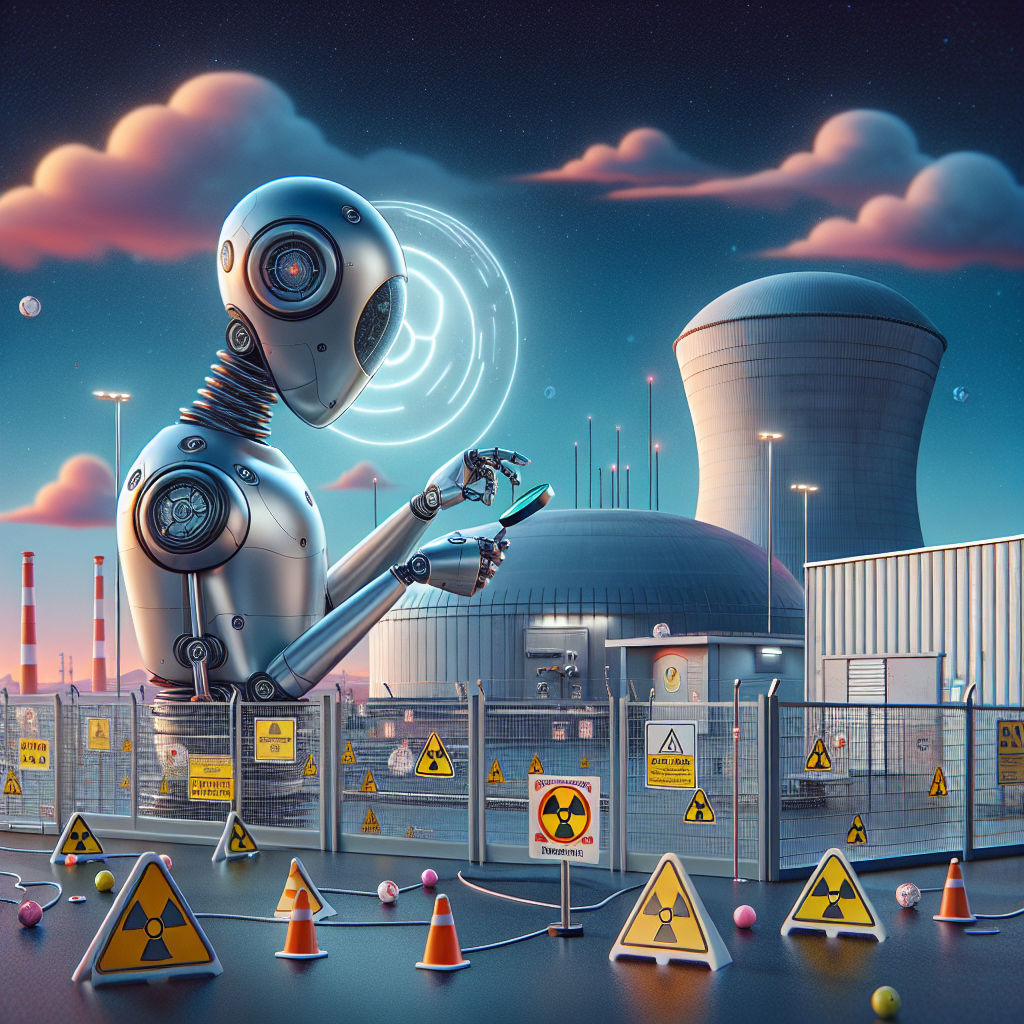IAEA Brings Nuclear Security Expertise to Formula 1 Grand Prix in Baku
The Baku Formula 1 Grand Prix is not just a high-speed sporting spectacle — it is also a high-profile global event that requires extraordinary measures to prevent potential threats.

For the first time in its history, the International Atomic Energy Agency (IAEA) has extended its nuclear security expertise to the world of Formula 1, supporting Azerbaijan in ensuring the safety of participants and spectators at the Baku Grand Prix. The event, running from 19 to 21 September, is expected to attract tens of thousands of visitors along the city’s six-kilometre street circuit, placing unique demands on security systems.
Nuclear Security at Major Sporting Events
The Baku Formula 1 Grand Prix is not just a high-speed sporting spectacle — it is also a high-profile global event that requires extraordinary measures to prevent potential threats. Given the massive crowds and international media coverage, the risk of illicit use of nuclear or radioactive materials cannot be overlooked.
“Major events are prime targets for criminals, including the potential misuse of nuclear and other radioactive material,” said IAEA Director General Rafael Mariano Grossi. “By extending our nuclear security support to the fast-paced world of motorsport, we are extending our vigilance – helping countries close critical gaps and keep the public safe.”
IAEA Mission in Azerbaijan
At the request of the Azerbaijani government, an IAEA expert team — composed of specialists from France, the United Arab Emirates, and the Agency itself — visited Baku from 9 to 12 September. Hosted by the State Agency for Nuclear and Radiological Activity Regulations of the Ministry of Emergency Situations, the team conducted site visits, held discussions with senior officials, and reviewed nuclear security protocols tailored for Formula 1 venues.
As part of its support, the IAEA loaned over 100 radiation detection instruments to Azerbaijan, ensuring authorities could monitor and respond to any potential incidents involving radioactive materials.
Murad Pashayev, Head of the State Agency, thanked the IAEA for its support, stating: “We reaffirm our commitment to further strengthening cooperation in the field of nuclear and radiation safety and security.”
Building on Past Cooperation
This mission builds on earlier IAEA assistance to Azerbaijan, notably during COP29, the United Nations Climate Change Conference held in Baku in 2024. The Agency will also provide nuclear security support for upcoming major events in Azerbaijan, including:
-
The Commonwealth of Independent States Games (November 2025)
-
The World Urban Forum (May 2026)
Globally, the IAEA is already engaged with Brazil, host of COP30 in November 2025, and Morocco, host of the 2025 Africa Cup of Nations, to enhance nuclear security preparedness at their upcoming events.
A Global Programme of Nuclear Security for MPEs
Since 2004, the IAEA has supported 88 major public events (MPEs) in 49 countries, providing training, technical advice, and radiation detection equipment. These include Olympic Games, political summits, religious gatherings, and international sporting events, all of which present unique security challenges.
“For the last two decades, the IAEA has been at the forefront of an effort to integrate nuclear security protocols into traditional security arrangements for MPEs – an effort ensuring the safety of millions,” said Elena Buglova, Director of the IAEA’s Division of Nuclear Security.
Behind the glamour of Formula 1 or the diplomatic importance of climate conferences, nuclear security experts work to guarantee that invisible but critical protections are in place to safeguard the public.
Expanding Training and Preparedness
The IAEA’s role has become increasingly significant as more countries expand nuclear programmes or adopt nuclear technologies. In 2023, the Agency inaugurated its Nuclear Security Training and Demonstration Centre (NSTDC) in Seibersdorf, Austria — the first international facility dedicated entirely to nuclear security training.
The NSTDC provides hands-on training for professionals worldwide, including tailored modules on securing major public events. Its work ensures that nations have the expertise and equipment necessary to protect against nuclear and radiological threats in both peacetime and crisis situations.
Looking Ahead
By extending its nuclear security measures to the Baku Formula 1 Grand Prix, the IAEA has demonstrated that nuclear vigilance now extends to the sporting arena, reflecting the growing complexity of global security in an interconnected world.
From racetracks to climate summits, the Agency’s work underscores that public safety in the 21st century requires integrating nuclear security into broader security strategies — a quiet but essential layer of protection that ensures major events remain celebrations, not targets.










